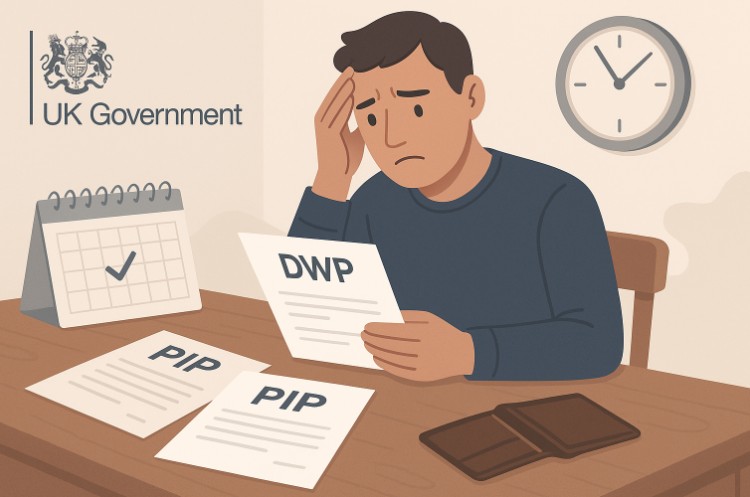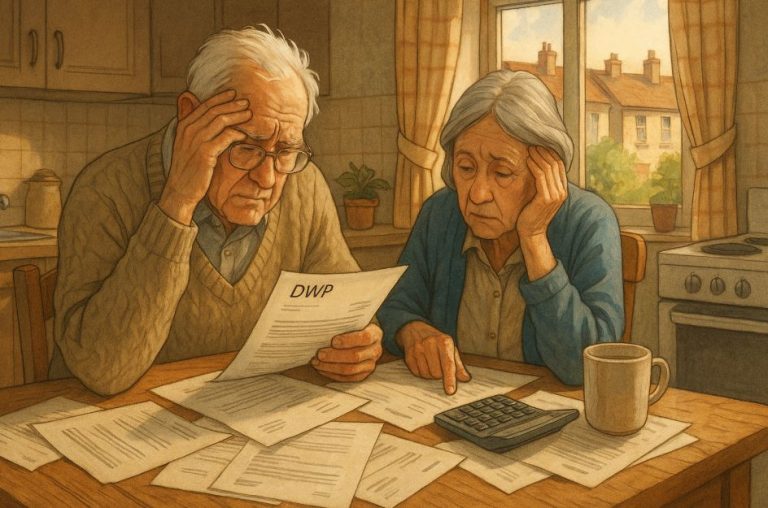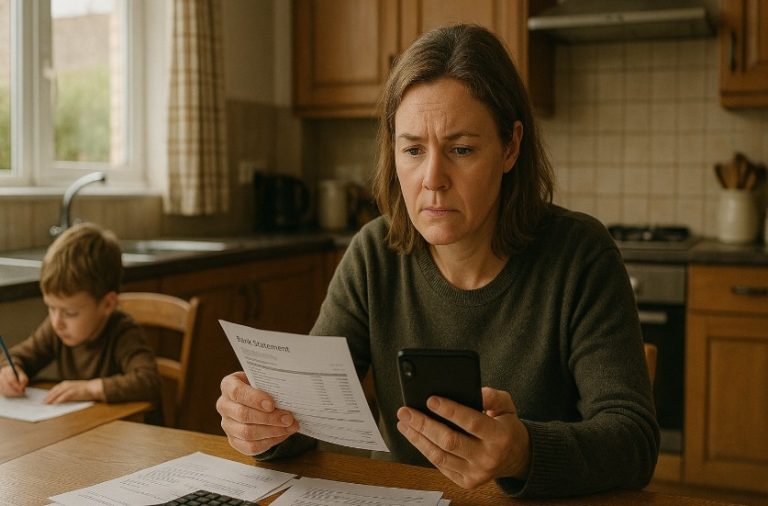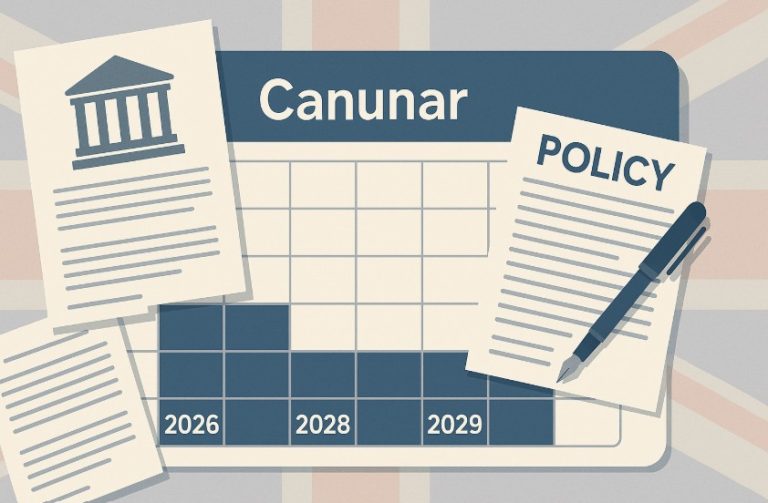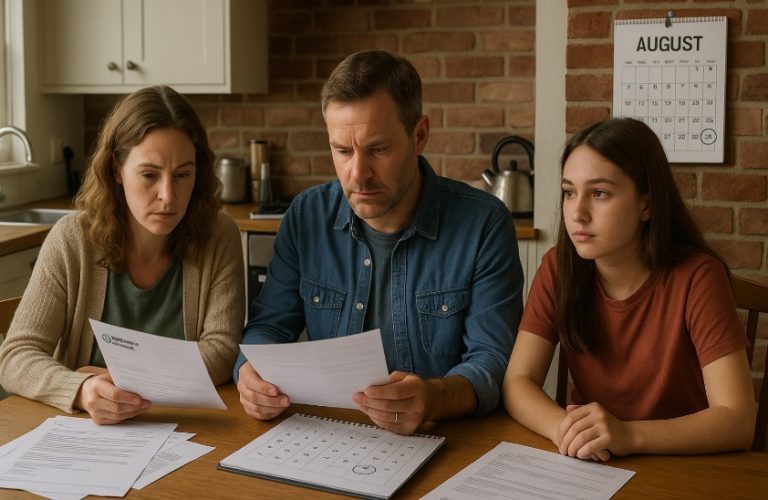When a partner moves in, it’s not just a change in household dynamics, it can significantly affect benefit entitlement. In the UK, many welfare benefits are means-tested, meaning your household income and circumstances directly impact eligibility.
If your partner moves in with you, benefits such as Universal Credit, Housing Benefit, Council Tax Reduction, Income Support, and Employment and Support Allowance (ESA) may be reduced or withdrawn.
This guide offers a detailed breakdown of the key benefit changes, obligations, and considerations to keep in mind when cohabiting with a partner.
What Happens to My Universal Credit if My Partner Moves In?

When you begin living with a partner, both of your financial circumstances are treated as a single unit under Universal Credit rules. This shift can significantly impact the amount of support you receive, even if one of you was not previously claiming benefits.
Understanding Joint Claims Under Universal Credit
Couples must link their claims to form a joint application. Each partner’s income, savings, and employment status are factored into one household assessment.
- The application must include both partners’ details
- Changes must be reported promptly through your Universal Credit journal
- Payment will be a single joint amount shared between both individuals
How Your Partner’s Income Affects Your Entitlement?
Universal Credit uses a taper rate system where benefits reduce as earnings increase. If your partner earns a salary or has other income, your overall benefit amount will decline based on the combined total.
If your partner has substantial income, this could disqualify you from receiving any Universal Credit at all, even if you were previously eligible as a single claimant.
Real-Life Examples of Universal Credit Changes for Couples
| Household Scenario | Universal Credit Status |
| One partner earns £28,000 per year | Likely to reduce or stop Universal Credit |
| Both unemployed with no income or savings | Eligible for joint claim |
| One partner has a part-time job earning £800/month | Partial Universal Credit may be granted |
Will I Lose Housing Benefit If We Live Together?
Yes, your Housing Benefit will likely be recalculated when your partner moves in, especially if they are employed or contribute to rent and bills. This is because Housing Benefit is means-tested and dependent on household income.
When Housing Benefit Is Reassessed?
Any adult moving into your household will trigger a reassessment of your Housing Benefit claim. This includes changes in rent liability, household income, and joint tenancy agreements.
If both you and your partner are listed on the tenancy agreement or mortgage, their income will be considered part of your household financial profile, even if they do not currently contribute to the rent.
Impact of Joint Tenancy or Household Contributions
Your Housing Benefit may be reduced or removed entirely if:
- Your partner pays part of the rent or utilities
- Their income pushes your household over the benefit threshold
- You no longer meet the eligibility for means-tested support
How to Report Your Change of Circumstances?
You must report your partner’s move-in date and details to your local authority. This can usually be done online via your council’s Housing Benefit portal. Include supporting documents such as updated tenancy agreements and payslips if required.
What Should Couples Know When Claiming Universal Credit Together?

When a couple starts living together, their eligibility for Universal Credit is assessed jointly. Whether they are married, in a civil partnership, or simply cohabiting, they are treated as a single unit by the Department for Communities. This change in status affects how claims are submitted, assessed, and paid.
Migration Notice and Transitioning to Universal Credit
If either partner receives a Migration Notice letter, it means that their existing benefits are ending, and they are required to move to Universal Credit. This transition is not automatic, failing to submit a new claim could lead to the loss of benefit entitlement.
The eligibility rules under Universal Credit may differ significantly from those of previous benefits. Before submitting a claim, couples are advised to seek guidance from independent services such as Advice NI to confirm whether making a joint Universal Credit claim is suitable for their circumstances.
Who Qualifies as a Couple for Universal Credit?
The Department defines a couple based on living arrangements and legal status. Couples are expected to file a joint claim if they meet the following criteria.
| Relationship Requirement | Condition |
| Marital status | Married or civil partners |
| Cohabitation | Living together as if married |
| Address | Residing at the same address |
| Age eligibility | Both aged 18 or over (with exceptions for certain 16–17-year-olds) |
| Capital limit | Combined savings/capital must not exceed £16,000 |
| Education status | Not in full-time advanced education (unless qualifying for specific exceptions) |
Couples may still claim if only one of them is eligible, but the ineligible partner’s income and capital will still be taken into account during the assessment.
Creating and Submitting a Joint Claim
Both partners must register for Universal Credit online. The first person to register will receive a partner code displayed on screen, which the second person must use when creating their account. This links the two accounts for a valid joint claim.
Once both accounts are created and linked, the couple must submit their claim within 28 days. Failure to do so means starting the process again with new accounts. Typically, the first payment is made around five weeks after submitting the claim.
Interaction with Existing Benefits and State Pension
Claiming Universal Credit as a couple may affect other ongoing benefits. When the joint Universal Credit claim is submitted, previous benefit entitlements will usually stop.
| Situation | Impact on Existing Benefits |
| One partner receives Housing Benefit or Tax Credits | These benefits will stop once the joint claim is made |
| One partner is at State Pension age | Their Pension Credit and/or Housing Benefit will stop when they join the UC claim |
| State Pension | Continues separately and is not affected by the UC claim |
If a couple includes one partner over State Pension age, they must claim Universal Credit if the other partner is under pension age. From 15 May 2019, Pension Credit is no longer available to mixed-age couples until both partners reach the qualifying age.
Working, Income, and Capital Considerations
Universal Credit can be claimed by couples who are working, whether employed or self-employed. However, the joint income and capital are assessed together. If total capital exceeds £16,000, the couple is not eligible for means-tested benefits like Universal Credit.
When making a claim, both partners will be asked for income details, employment status, and financial responsibilities. The system uses this information to calculate eligibility and payment amounts.
Claimant Commitment and Sanctions
Once the claim is active, each partner must agree to a claimant commitment, which sets out their responsibilities in exchange for receiving benefits.
Commitments may include job searches, attending appointments, or undertaking training. These are assessed on an individual basis depending on circumstances like health, caregiving responsibilities, or work status.
If one partner does not comply with their commitment, their portion of the Universal Credit payment may be reduced. This is known as a sanction. The DWP will inform the claimant of the amount lost and the duration of the sanction.
Payment Method and Money Management
Joint Universal Credit payments are usually made twice per month. The payment can be directed to:
- A joint account
- An account in one partner’s name
It’s recommended that the receiving account supports automated payments to cover essentials like rent and utility bills.
Budgeting support and debt advice are available through local job centres or independent financial advice services. Couples struggling with financial management may request additional support from their work coach or external organisations.
Do Couples Have to Make a Joint Claim for All Benefits?

Not all benefits require a joint claim, but most means-tested benefits do. Whether or not you need to apply together depends on the nature of the benefit and how it is assessed by the Department for Work and Pensions.
Which Benefits Require Joint Applications?
The following benefits are affected and typically require joint claims:
- Universal Credit
- Housing Benefit
- Income Support
- Pension Credit (for couples where one or both partners are of pension age)
- Council Tax Reduction
Benefits That Remain Individual After Moving In Together
Some benefits are not impacted by cohabitation because they are not based on household income:
- Personal Independence Payment (PIP)
- Disability Living Allowance (DLA)
- Contribution-based Jobseeker’s Allowance
- Carer’s Allowance (under certain conditions)
Consequences of Failing to Report a Relationship
Failing to disclose your living arrangement is considered misrepresentation. The penalties for not reporting a change in household can include:
- Suspension or cancellation of benefits
- A demand for repayment of overpaid benefits
- Referral for investigation under benefit fraud regulations
How Does Moving In Affect Council Tax Reduction?
Council Tax is charged per property, not per person. However, the number and status of adults in a property directly affect discounts and exemptions.
Who Is Responsible for Council Tax After Moving In?
Generally, the person named on the council tax bill remains responsible. If both partners are co-tenants or homeowners, they become jointly responsible. Even if only one person is officially named, both may be held accountable for unpaid Council Tax if they live at the property.
Changes to Single Person Discount
The Single Person Discount gives a 25% reduction in Council Tax if only one adult lives in the home. Once a second adult moves in, this discount is automatically removed, even if the new partner does not contribute to the bill.
How Local Councils Assess Your Joint Income?
Local authorities assess your combined income and capital to determine eligibility for Council Tax Reduction. Each council operates its own reduction scheme, so eligibility thresholds can vary.
Could I Lose Income Support or ESA?

Income Support and income-related Employment and Support Allowance (ESA) are designed for individuals with limited income. Cohabiting with a partner can affect your entitlement to either of these benefits.
Means-Testing and Living Arrangements
Once your partner moves in, your claim becomes a joint one, and their income will be evaluated alongside yours. If your partner has a stable income or savings, this could disqualify you from receiving Income Support or income-related ESA.
Contribution-Based vs Income-Related ESA
It’s important to distinguish between the two:
- Contribution-based ESA is not affected by your partner’s income and remains payable if you meet National Insurance contribution conditions
- Income-related ESA is based on joint household income, meaning your partner’s earnings will influence your claim
Appeal Options If You Lose Entitlement
If you believe the benefit reduction or cancellation is incorrect, you can:
- Request a mandatory reconsideration from the DWP
- Submit an appeal to the First-tier Tribunal
- Seek help from a welfare rights adviser or the local Citizens Advice
How Does My Partner’s Income Change My Benefit Entitlement?
The financial circumstances of your partner are evaluated alongside your own for most means-tested benefits. Their income, assets, savings, and even employment type can influence what support you receive.
DWP Income Thresholds and Assessments
The DWP applies specific income thresholds when assessing joint claims. Once you exceed these thresholds, your benefits will be reduced using a taper rate, which typically reduces your benefit by 55p for every £1 earned over the work allowance (in the case of Universal Credit).
Capital, Savings, and Financial Support from Your Partner
If your partner has savings of:
- Over £6,000: Your benefit entitlement may reduce on a sliding scale
- Over £16,000: You may lose eligibility for most income-based benefits altogether
These figures apply jointly, meaning your partner’s financial assets count even if they are held separately.
What to Do If Your Partner Refuses to Share Financial Info?
Both parties are required to fully disclose financial information. If your partner refuses to do so, you may be unable to complete a joint claim. This can result in suspension or denial of benefits, and you may need to seek support from welfare services or mediation.
What Other Benefits Could Be Affected by Cohabitation?

Living together can affect additional types of benefits, especially those that relate to children or caring responsibilities.
Child Tax Credits and Child Benefit
When a couple lives together, the child-related benefits are generally applied as one unit. If both partners are responsible for the child, you must inform HMRC, and a joint claim for Child Tax Credits will be required. However, Child Benefit is usually paid to one parent and is not means-tested.
Carer’s Allowance Eligibility
You can still claim Carer’s Allowance while living with a partner, but any earnings or Universal Credit claims could affect your eligibility. For example, if you’re receiving Universal Credit and caring for someone, you may be eligible for the carer’s element instead of a standalone Carer’s Allowance.
Pension Credit and Cohabiting Rules
For couples where one partner is of pension age and the other is not, you can no longer claim Pension Credit. In such cases, you must apply for Universal Credit instead. This rule change has affected many mixed-age couples since its introduction in 2019.
Benefit Changes When a Partner Moves In:
| Benefit | Individual Claim Allowed? | Affected by Partner’s Income? | Notes |
| Universal Credit | No | Yes | Must form a joint claim once cohabiting |
| Housing Benefit | No | Yes | Reassessed based on combined income |
| Council Tax Reduction | No | Yes | Single person discount removed |
| Income Support | No | Yes | Joint income considered in full |
| Employment & Support Allowance | Yes (contribution-based) | Sometimes | Income-based ESA is assessed jointly |
| Personal Independence Payment | Yes | No | Not means-tested; unaffected by household changes |
| Child Benefit | Yes | No | Paid to one parent; not affected by partner’s income |
| Carer’s Allowance | Yes (conditions apply) | Yes | Earnings and household income may affect entitlement |
Conclusion
Cohabiting with a partner is a significant personal and financial step. While it may lead to reductions or losses in certain means-tested benefits, it also provides opportunities to reassess and improve your household finances.
The most important action is to stay informed, report changes promptly, and seek professional advice when needed. Use trusted tools and services to calculate your entitlements and make informed decisions about your future together.
FAQs About Moving In With a Partner and Losing Benefits
Can I still claim Universal Credit if only I’m working?
Yes, but it will be based on both partners’ total income, even if one is unemployed.
Does my partner’s savings count against my benefits?
Yes. Combined capital over £6,000 can reduce payments; over £16,000 may disqualify you.
What happens if my partner has debts?
Your benefits aren’t affected by their debts, but their financial responsibility may be considered.
Will I lose my benefits if my partner stays over regularly?
If the partner is effectively living with you, the DWP may treat it as cohabitation. Be honest in your reporting.
How long do I have to report living together?
You should notify benefit agencies immediately once your partner moves in.
Can I claim benefits separately while cohabiting?
No. Most means-tested benefits require joint claims once you live together.
Is there help available if my benefits are reduced?
Yes, you may apply for Hardship Payments, Discretionary Housing Payments, or get advice from Citizens Advice.


